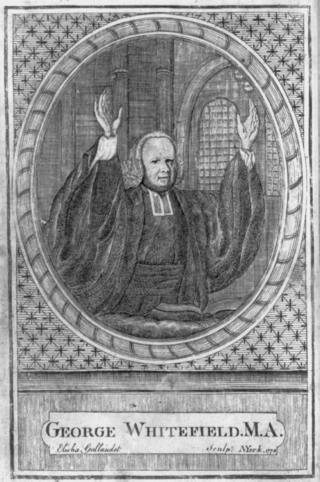Related Research Articles
This timeline of Christian missions chronicles the global expansion of Christianity through a listing of the most significant missionary outreach events.

Robert Caldwell was a British missionary and linguist.

United Society Partners in the Gospel (USPG) is a United Kingdom-based charitable organization.

The Hebrew Christian movement of the 19th and early 20th centuries consisted of Jews who converted to Christianity, but worshiped in congregations separate from denominational churches. In many cases, they retained some Jewish practices and liturgy, with the addition of readings from the Christian New Testament. The movement was incorporated into the parallel Messianic Jewish movement in the late 1960s.

Ridley Haim Herschell was a Polish-born British minister who converted from Judaism to evangelical Christianity. He was a founder of the British Society for the Propagation of the Gospel Among the Jews (1842) and of the Evangelical Alliance (1845),
Protestants in India are a minority and a sub-section of Christians in India and also to a certain extent the Christians in Pakistan before the Partition of India, that adhere to some or all of the doctrines of Protestantism. Protestants in India are a small minority in a predominantly Hindu majority country, but form majorities in the north-eastern states of Meghalaya, Mizoram and Nagaland. They are also significant minorities in Punjab region, Konkan region, Bengal, Kerala and Tamil Nadu, with various communities in east coast and northern states. Protestants can trace their origins back to the Protestant Revolution of the 16th century. There are an estimated 20 million Protestants and 16 million Pentecostals in India.
Sir Culling Eardley Eardley, 3rd Baronet was a British Christian campaigner for religious freedom and for the Protestant cause, one of the founders of the Evangelical Alliance.
Protestants in Japan constitute a religious minority of about 0.45% of total population or 600,000 people in 2020.
The Church's Ministry Among Jewish People (CMJ) is an Anglican missionary society founded in 1809.

Christian Zionism in the United Kingdom is a Christian ideology that sees the return of the Jews to Israel as a fulfilment of scriptural prophecy. Supporters of Christian Zionism believe that the existence of the Jewish State can and should be supported on theological grounds.

Christianity in the 18th century is marked by the First Great Awakening in the Americas, along with the expansion of the Spanish and Portuguese empires around the world, which helped to spread Catholicism.
Characteristic of Christianity in the 19th century were evangelical revivals in some largely Protestant countries and later the effects of modern biblical scholarship on the churches. Liberal or modernist theology was one consequence of this. In Europe, the Roman Catholic Church strongly opposed liberalism and culture wars launched in Germany, Italy, Belgium and France. It strongly emphasized personal piety. In Europe there was a general move away from religious observance and belief in Christian teachings and a move towards secularism. In Protestantism, pietistic revivals were common.

Christ Church, Jerusalem, is an Anglican church located inside the Old City of Jerusalem, established in 1849 by the London Society for Promoting Christianity Amongst the Jews. It was the original seat of the Anglican Bishop in Jerusalem until the opening of St. George's Cathedral, Jerusalem in 1899; the compound also included the 19th century British Consulate. From its inception, Christ Church has been supporting a form of Christianity focused on Jesus' Jewishness, offering Christian texts translated into Hebrew by its own leaders.
Christian mission to Jews, evangelism among Jews, or proselytism to Jews, is a subset of Christian missionary activities which are engaged in for the specific purpose of converting Jews to Christianity.

August Ferdinand Carl Schwartz DD (1817–1870) was a Hebrew Christian clergyman and minister of the Free Church of Scotland serving in Amsterdam and London.
Michael F. Bird is an Australian New Testament scholar, theologian and Anglican priest.

Evangelical Anglicanism or Evangelical Episcopalianism is a tradition or church party within Anglicanism that shares affinity with broader evangelicalism. Evangelical Anglicans share with other evangelicals the attributes of "conversionism, activism, biblicism and crucicentrism" identified by historian David Bebbington as central to evangelical identity. The emergence of evangelical churchmanship can be traced back to the First Great Awakening in America and the Evangelical Revival in Britain in the 18th century. In the 20th century, prominent figures have included John Stott and J. I. Packer.

International Mission to Jewish People (IMJP) formerly Christian Witness to Israel (CWI). The organisation, which was founded in 1842, was consolidated in 1976 by the amalgamation of two agencies: The International Society for Evangelisation of the Jews and The Barbican Mission to the Jews.
References
- ↑ Cyclopædia of Christian Missions - Page 195:- John Logan Aikman - 1860 THE BRITISH SOCIETY FOR THE PROPAGATION OF THE GOSPEL AMONG THE JEWS. This Society was established in 1842, in London, and draws its chief support from the various dissenting communities in England. Its object is identical with that of ...
- ↑ Ellen Spolsky Iconotropism: turning toward pictures - Page 126 - 2004 London Society for Promoting Christianity Amongst the Jews (founded 1809) and the Presbyterian British Society for the Propagation of the Gospel Among the Jews (founded 1842).30 The former, founded by Anglicans, was then also known as the London Jews' Society and ...
- ↑ Jacobs, Joseph; Lipkind, Goodman. "Herschell, Ridley Haim". Jewish Encyclopedia. Retrieved 2019-04-27.
- ↑ The Palgrave Dictionary of Anglo-Jewish History. 2011. pp. 126–127. Retrieved 28 July 2015.
- Dunlop, John (1894). Memories of gospel triumphs among the Jews during the Victorian era. London: S.W. Partridge & Co.